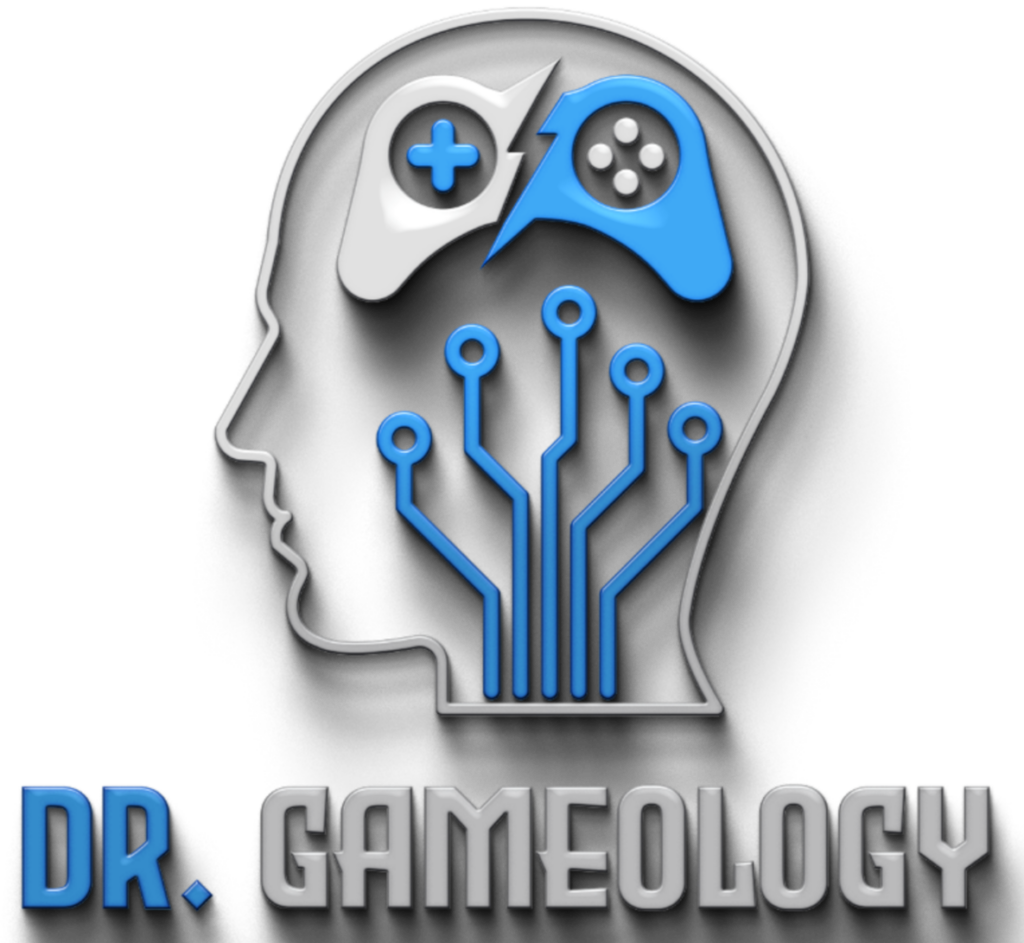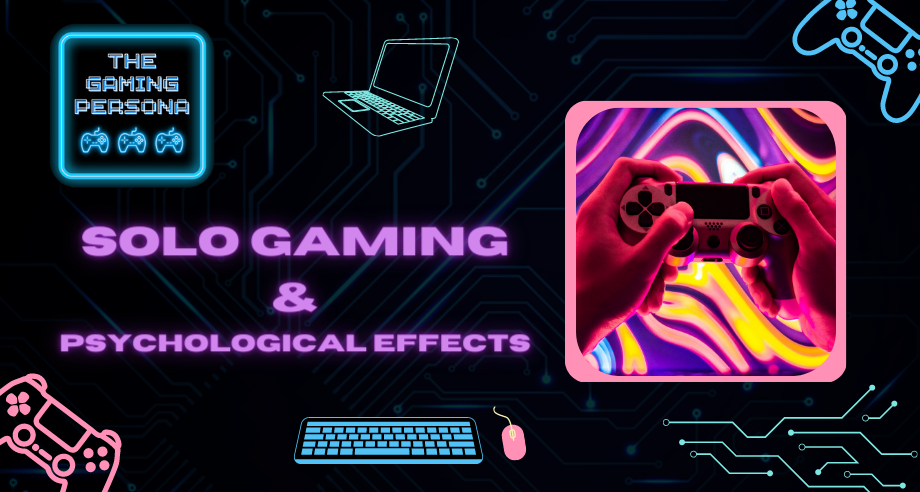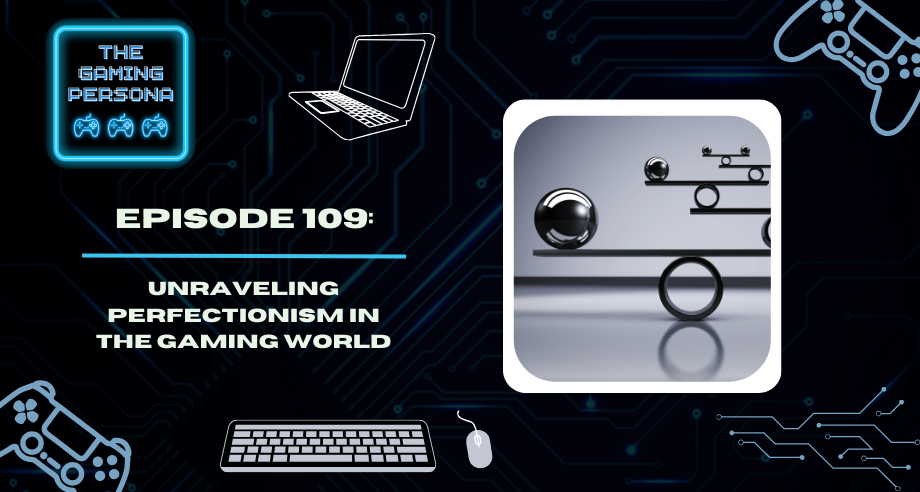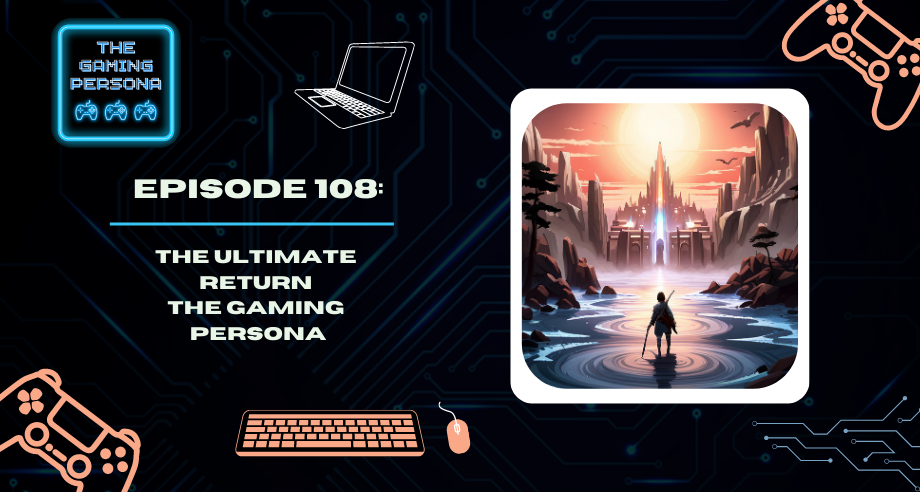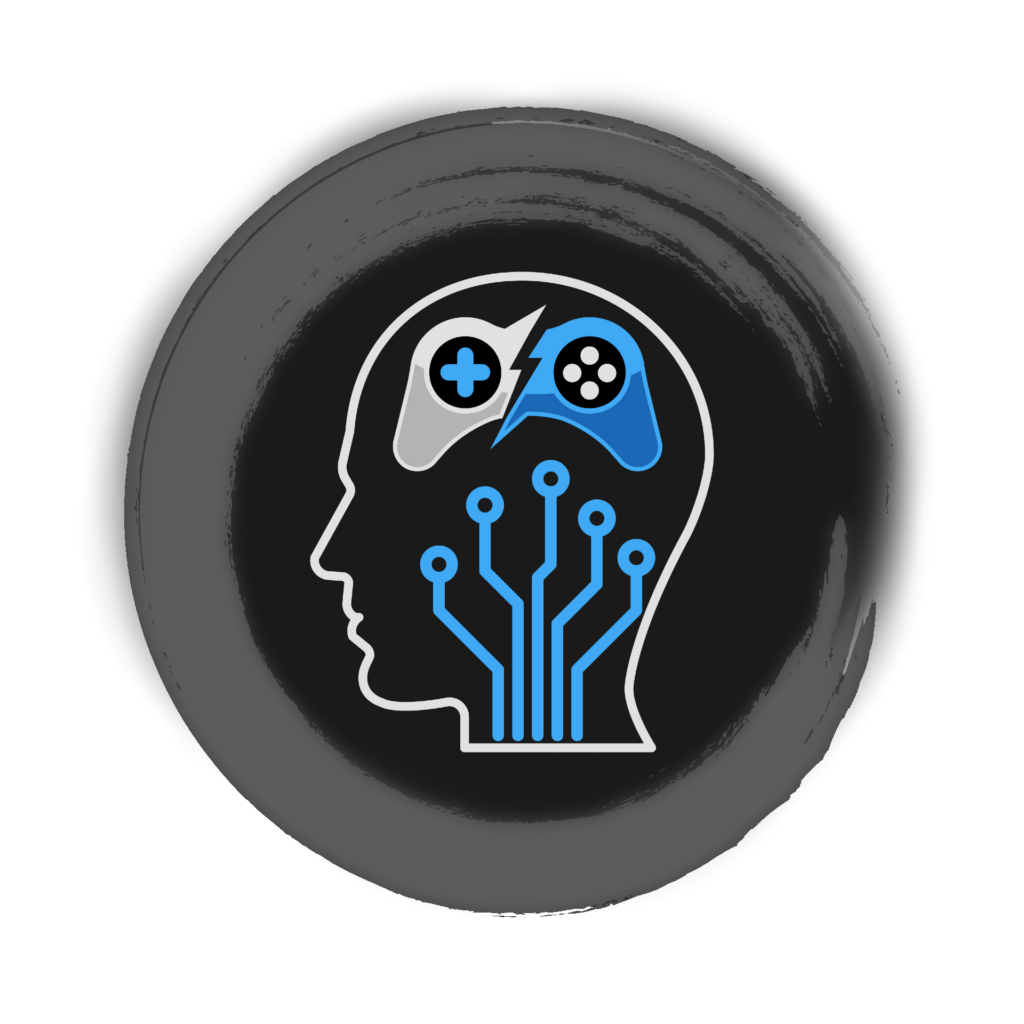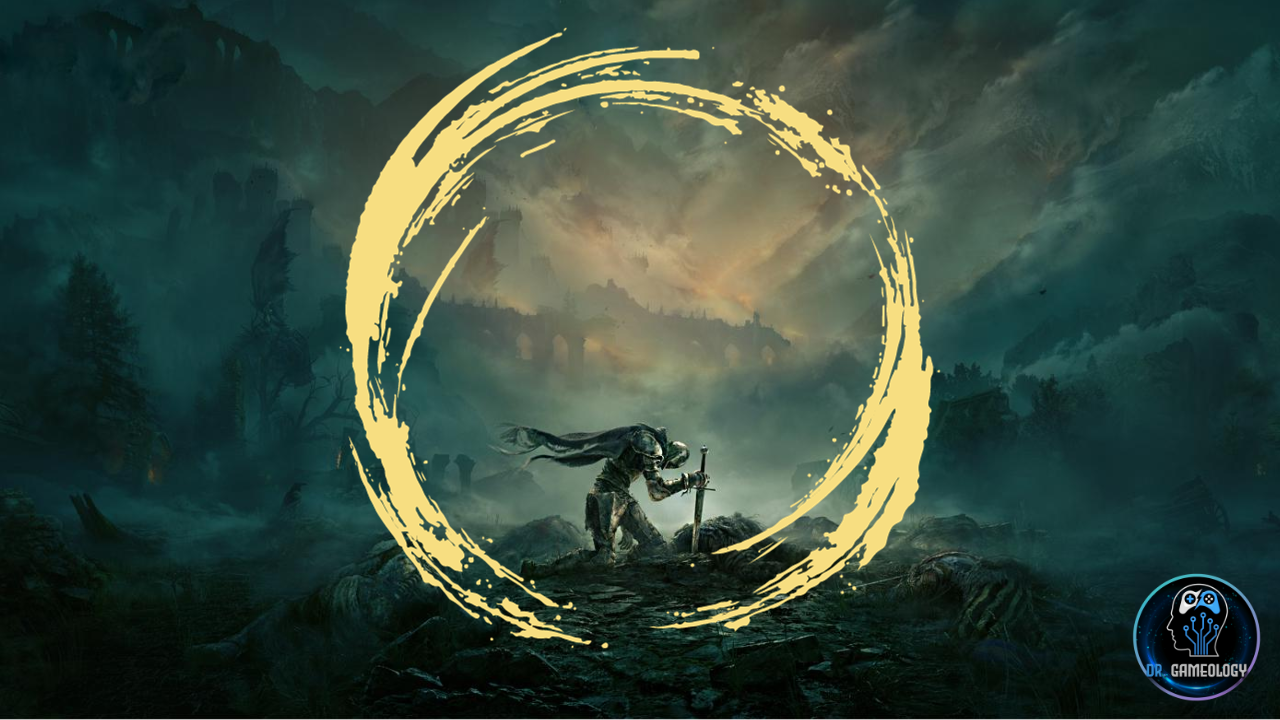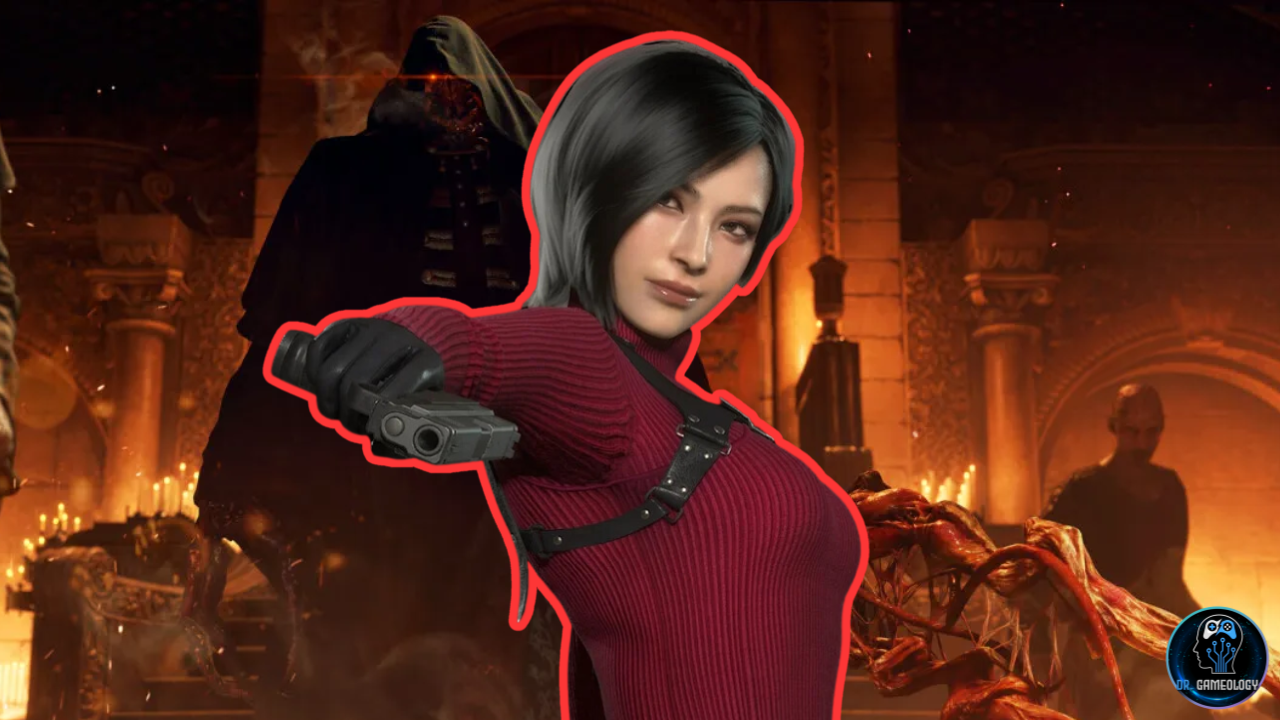Solo Gaming & Psychological Effects
Join us this week on The Gaming Persona podcast as we dive deep into a new research study on solo gaming and the various psychological effects of game playing.
We are joined by doc student from Mount Mary University, Tyler Secor, to review the most important gaming experiences in his journey to starting as a counselor educator and games researcher. This chat also carries a significant connection for Dr. Gameology which is discussed during the episode.
Link to Tyler on Twitter
Discover how being a game player influences general wellbeing, self-efficacy, problem-solving abilities, social connections, and more. Get an exclusive look at the methods used to determine trends in gaming behavior across all ages – from teens to adults of all types – as well as insight from expert researchers in the field. Learn how you can participate in the study and make your voice heard.
Download & Listen to this episode of The Gaming Persona Here:
Gaming Library:
Elden Ring, Marvel’s Midnight Suns, Marvel Snap, Dead Space, Star Wars: The Old Republic, The Legend of Zelda: Majora’s Mask, Star Wars: Knights of the Old Republic, The Last of Us, Final Fantasy XIV Online, Overwatch, The Last of Us: Part 2
All right. Well, normally, I would ask, “What are we going to talk about in the world of video games today?” but today is very simple. It is a guest interview episode. We’re going to Find Our Allies. We’re going to introduce you to a new friend that I’ve made through the book of faces. And we’re going to talk about his gamers journey.
Solo Gaming: The Ordinary World
So with that, let’s go ahead and step into The Ordinary World where we share our everyday life through our games. All right, so everyone, the guest of honor for this hour of podcasting greatness is Tyler Secor. He is a clinical mental health counselor. Yeah, the best mental health profession. And he is in Wisconsin, and he primarily works with children and families. And he likes psychodynamic systems because they’re awesome if you’re smart. And he likes family systems narrative and existential perspectives. He is a doc student at Mount Mary University. And like I said, Counselor Ed and Supervision, the best holistic and intellectual doctorate in mental health, if I can say that on my own show. And, like me, I actually took notice of him and the way he was doing a study that we’re going to talk about, because it really seemed like his perspective on video games was anti stigma against stereotypes and focusing on positive psychology, which we talk about all the time on the show. So welcome to The Gaming Persona, Tyler.
Thank you for having me.
All right. So in this segment, we just talked about what we’re playing and what we’re thinking about in video games. And to show you how it’s done. Gene, what are you doing with a controller or a keyboard or a mouse in your hand?
Well, my co-op saga with my wife and Elden Ring has progressed we are NK lid, nice and all the horrors of Kailyn so that’s fine, you know, by the way, co-op in Caelid kind of sucks because you don’t have access to torrent so you get to trudge around and rot.
Yeah, there are some places in Elden Ring that are just straight up nasty, filthy. Frustrating.
Yeah. And besides that, I started playing Marvel’s Midnight Suns. It’s pretty interesting. card base strategy game.
Okay. Is that a Phone Game?
No, no, it’s a PC game.
Oh, cool. All right. I didn’t know that.
Yeah. The one you’re probably think of is Marvel Snap. I haven’t played that.
Oh my gosh, what is Marvel doing? I was thinking Marvel Snap.
Yes, it is kind of weird that they would release a full-blown console or not well console and PC, story driven card game and then also It plays at the same almost the same time. A gotcha based, monetized car game, mobile apps, it’s confusing.
All right, well, what’s the verdict out of five stars? Where does it feel like it falls?
So far, it’s like a four out of five. It’s a little different than I was hoping it would be. I was hoping a more of a full-blown strategy game. But what this is, is basically, you know, out of your roster of Marvel characters, you pick three guys, or girls, whatever. So for instance, you have Spider Man, Iron Man and Captain America and a team. And you have a deck of 24 cards, eight cards per character, and us kind of how you play three cards per turn, and any combination. And you kind of just have to try to make your three heroes gel together. So you know, you can play a card as Spider Man, grab someone with his web and throw them across the field in July or man who will shoot him. And then at the end of that I have I don’t know Captain America, throw a shot at him, and taunt him because Captain America is the tank in this game.
So team up attacks. Yeah, that’s so much fun.
But it’s yeah, like I said, it’s only a four out of five for me, because it’s not a full-blown tactical strategy game you like. The cards dictate what you do, you know, you can’t have if you bet drawback cards, spider man might not be able to web someone, he might be limited to kick them. And it’s like a monster.
So he’s the Spider Man struggling with self-esteem in the Tobey Maguire universe?
Yeah. But it’s like that for every character is like, Oh, this talk, this chat. And this turn. For some reason. Ironman can’t fly. And it’s like,
Wonderful. All right, Tyler. I’ve been using my SOLER skills to observe how you’re reacting to things Gene said, and you had reactions to Elden Ring stuff. So what was that about?
It’s mainly envy. I have not had a chance to play. Okay. Yeah. The main game I’ve been playing lately is the game of Doc School, which is kind of all consuming.
Is that a level in The Sims that you can create?
I don’t know. I don’t know if people want to be tortured, but…
You’re not talking to volleyballs? Or like, seeing random people that don’t exist in the corners of the room yet? That’s the same thing. I’m sorry. Okay. Well, all right. So how is how is that going? What in general? Have you been doing in the game of Doc school?
Oh, tons of stuff. So like you. My doc program is counselor education and supervision. So lots of teaching counselors doing clinical supervision, and also doing research and a little counseling here and there when I can.
All right, excellent. All right, well, I have a wonderful announcement for everyone that fits into The Ordinary World perfectly. And it’s kind of an offshoot sub segment that’s going to be in The Ordinary World, at least for the time being. And we are going to do shout outs for our allies or enthusiastic enemies. And that is because Patreon is live for all of the Dr. Gameology content, which The Gaming Persona is a huge element of that. And we have our first ever Patreon subscriber, that’s going to get a shout out. And that goes to Brian because that’s the name I have for them in Patreon. So thank you so much, Brian, for supporting the show and signing up for that. And it is under Dr. Gameology. So if you want to support the show, that way, it’s going to be in the description for the episodes. And you don’t have to do that. One of the reasons I decided to add this in is because our show is growing. And there’s probably soon going to be intro and outro kind of tags to the show. So if you do enjoy the show ad free, signing up for Patreon is a way to get us to show our appreciation for you during the episodes and you not to have to listen to ads or tags or things of that sort. But this is also a big deal because we’ve been doing this show for over two years now. And I have been covering the cost of all the little things that go into it just by therapy sessions and income from being a clinician and so this is my way to free up resources to do even bigger things moving forward. So I have a plan for this. And I’m really excited.
I’ve also been playing some video games up until stream on Sunday, so I was playing Dead Space and gene. I’ve made it to chapter 10 of Dead Space.
So good. I’m glad you’re overcoming your previous terror on the game.
Oh, I have no terror anymore. I am a completely different person. I laugh when I get ripped apart. It’s amazing.
Yeah, the death animations in that game are quite are so over the top they become comical.
Oh, yeah, there was this one time where I completely solved the puzzle in the room. It was a part of the game where he had to shoot the meteor rock out of the ship, and then go outside the ship and remove those tethers as well. Oh, yes. So that the communication beacon can go outward? Yes, I solved the puzzle to do the outer space part. Except I didn’t notice that there was a spinning wheel that only was on the right half of the circle to fly out. So I got ripped apart. And I was just like, “Hmm, well, I wonder where I’m going to respond and how much of this puzzle I have to do?” And would you know it the answer to how much puzzle do I have to do again? Is the whole thing.
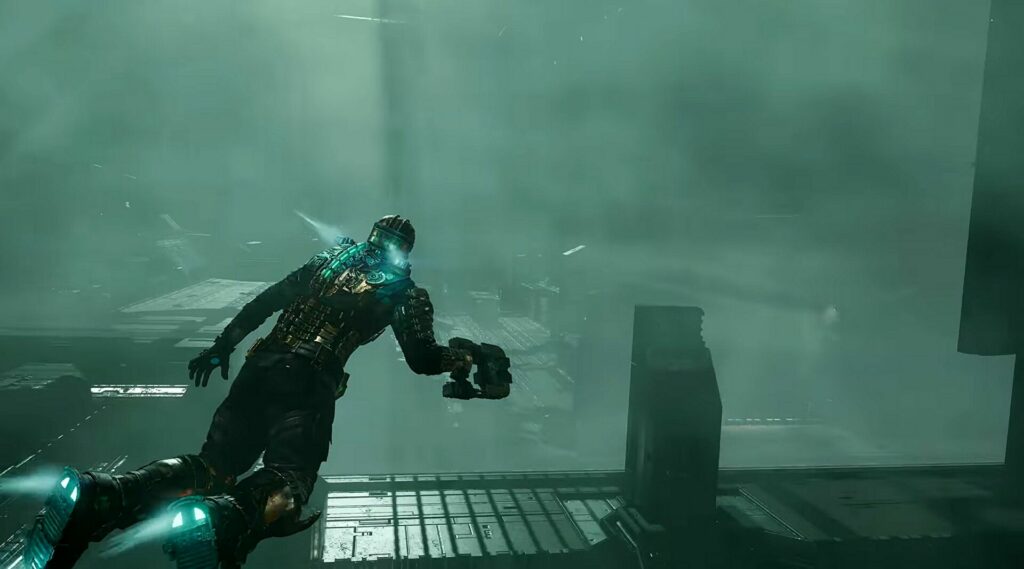
Yes. So a place I’ve also died before I die it they’re in their original Dead Space in the remake? I was like, not again.
Yeah, it’s so when I’m thinking about impossible difficulty and I’m thinking about all the cheap, just get ripped apart instantly moments that can happen to you in the game. That sucks. That is why I’m just making peace right now within myself that I’m not doing a perma death, high difficulty run through this game, but I’m enjoying what I am doing, which is the middle of the road kind of difficulty where it is survival horror, you do run out of bullets. But getting sliced open a little bit is kind of funny. Like, oh, I didn’t play perfectly. That’s great. This is good for my humility that I don’t just walk into every room and own it in here. Like I made the attempt to do by being over prepared and thorough and comprehensive everywhere else.
What weapons are you enjoying so far in that?
I really like the contact laser.
Okay, yeah, that’s a good one.
Actually, funny story. I forgot about the force gun. And then my inventory just filled up. And it was all force gun ammo because I went five chapters without even using that gun. So then out of necessity, I had to switch. And then I realized, oh my gosh, this is the shot gun of this game. I have been making my life more of a nightmare than it needed to be. And yeah, so that was fun. But then the same kind of thing happened in a previous chapter where I had to start using the flame thrower because I stored up too much ammo for that. And that was terrible. Because I hate the flame thrower.
Yeah, the strategy, like that you’re supposed to do is only a clip the guns that you want ammo for. Because that’s how like, drops work.
It’s like there is a trophy in the game called the one-gun challenge. It’s where you only use the plasma cutter. And so if you don’t equip no other guns, you only get plasma cutter ammo, which helps because you need a lot of it.
I’ve been playing the game wrong Gene.
Not wrong, because if you know what you’re doing, like, I don’t care. Well, if you don’t care about using that gun, you just sell the ammo for free cash.
Yeah, there are a few things like the stasis energy. I usually do sell that because you find it on the wall. Right to refill. I don’t use it very much. But I guess on higher difficulties. That’s a critical skill. Yeah, probably.
On higher level cardio is where ammo is even harder to manage. And there’s a lot of slowing them down and then stomping on them a lot to save as much ammo as you can.
Okay, Tyler, have you by any chance played Dead Space?
I did but it was like probably 10 years ago, right?
That’s because you are a normal human being who likes video games. For some reason, I was too terrified as a Master’s student to play it, and then I never did play it. And so this is a new experience for me. But I love survival horror, because of Resident Evil. And I mean, I know Resident Evil kind of went through a phase where it wasn’t survival horror ish anymore, but I love that franchise. So Dead Space is like, Resident Evil, but if you just watch Alien, so I like it a lot. Okay, we are going pretty long on The Ordinary World here, and we have other things to accomplish. But we covered Patreon, we covered dead space. And I’m going to table the other things, because I think, if possible, it would be fun to have Jenny in on some of those conversations.
Solo Gaming: Finding Our Allies
So let’s go ahead and do Finding Our Allies. Because it’s too dangerous to go alone. All right. So Tyler, I already did your bio, I kind of flipped it into the other segments, so people would know you as you speak. So we know you do counselor education supervision, like me, I want to just share before we get into your, your, your study and what you want to tell us about it. When I saw your post in the geek therapeutics group on Facebook, the reason I jumped in and asked you to come here is because my dissertation was on Star Wars: The Old Republic in 2015. And I went on a show called Ootinicast, which was a podcast that’s all about Star Wars, The Old Republic, and got to do what you are doing right now. And as a doc student, and talk about my study, how do you participate? What are we looking at? And I just, for some reason, I looked at what your questionnaires were. And I thought, “Wow, maybe I can help in a little bit of the same way.” So I’m super excited to have you here. Because in terms of the gamers journey kind of thing. Maybe back then, you know, I was the Jedi apprentice seeking the master status, or the doctor status. And so now I’m the cranky old guy standing on the top of a cliff. And you’re the one walking up the hill to hand me a lightsaber. So I just wanted to share that with you. So, to start, welcome, again. And could you tell us a little bit about as a counselor education and supervision student, what has interested you about the cross section between the psychology and the play of video games?
Ooh, many, many things. So I guess Personally, I believe that, that people play video games a lot to supplement unmet emotional needs. And that was certainly my personal experience and the experience of many that I know. And I kind of felt like, well, I mean, it’s, I didn’t just feel like and I think there’s a lot of stigma surrounding video gamers in games. So, you know, kind of like my whole idea behind integrating video games into counseling and to counselor education is to reduce that stigma. And also, you know, kind of thinking like if people are playing video games, in many ways to meet a lot of the same needs that are sought by therapy, than why are we pathologizing them, you know, why don’t we harness them and use them for good?
Yeah, absolutely. One of the things that I’ve always noticed as a clinician is that when a person comes in to do counseling, and someone in their wife says they play video games too much, or in a certain way, you’re automatically saying the thing you’re passionate about is bad. But most people in society just hear it as playing video games this certain way is bad. So they’re already not looking at it like it’s a talent or it’s an interest or it’s a passion. They’re looking at it like it’s a drink of alcohol or a needle for heroin. And, and it can be a critical element of someone’s downfall. Right, you can fail college or grad school in part because of the way you play video games. But the way you the way you play video games, has a lot more to it. to where it’s not the same thing as that, you know, too many cans of beer or things you smoke or things you inject.
Yeah, absolutely. Yeah, I completely agree with that. And I experienced that a lot. I can’t tell you how many times, like, you know, most of my experience as a clinician is working with children and families. And so often, like, that’s usually the presenting concern that comes in, it’s like, well, they’re playing too many games or, you know, they’re not focusing on other areas of their life. So yeah, I encounter that a lot.
Yeah, you just made me think if we if we break our lives, so the three of us on the show right now, if we break our lives into a life area, we’ll so things like personal growth, occupation, intimate relationships, family, and friends. That that statement about, you’re playing too many games, you’re not addressing other areas of life is a generalist perspective that were supposed to be equally competent in all areas of life. Whereas to be successful, especially vocationally successful, it is more about mid maxing. So Gene, Do you min max in your life areas? Or do you try to just be a nine or a 10? In every category?
I generally my max, like, you know, one thing I’ve discovered as a, as I’ve aged, and now a homeowner, is that there are things that are just not worth your blood, sweat and tears to do like, I should not be doing plumbing work. I just shouldn’t do it. Yeah, I’ll pay someone to do it.
But there’s YouTube University Gene.
Yeah, YouTube university could get you easily killed.
Hear that everyone? That’s some serious stuff, and it’s true. And the DIY evangelists out there. You know, with their fives out of 10s in every category, because their generalist approach. Yeah, some things you shouldn’t trust YouTube to be your instructor. Yeah, so Tyler, what do you think about this whole kind of stat allocation? thought experiment we’re doing as the doc student on the call right now?
You mean, like, where you emphasize different areas of your life? Yeah. Yeah. Well, I think, you know, I think that that’s what makes us all individuals, you know, like strengths and weaknesses are part of it. So I think that there’s a lot of value to leaning into your strengths. And you know, like, I too, am not a plumber. So, and I don’t feel bad about that, either.
Man, if I was a plumber, right now, I have a faucet in my master bedroom, that would not be dripping. It drips like, oh, it’s the worst, I hate it. But, you know, I grade tons of papers. So it’s, it’s fine, I guess. Yeah, I actually do that as a clinical intervention with people all the time is I break out a worksheet that has a wheel that’s set up into eight sections, like the compass, and each of those eight sections has 10 striations. And I tell them, so if you had 80 skill points, you could be max stat max level, you could be God, right, like God mode, life wheel. But that’s not how life is I tell them you have 45 You have barely more points than a 50% awesome person. And the reason I do that is because it’s an RPG situation for them now, and they’re going to show me their character sheet for life. And if you give yourself a 10 Something else is a five and I’m going to pop the bag of popcorn and I cannot wait to talk with you about how you made that decision. And so going back to one of the earliest games that influenced me was Knights of the Old Republic and there are a lot of tough stat decisions and tough ability decisions as you level up spoilers, but it’s just Super old games. So get over it as you level up your version of Darth Revan Oh, yeah, as you level up Revan. And unless you’re cheating, you can’t God mode, that game, you’re going to be terrible at things. And so that leads me into something I’ve been thinking of. I can’t wait to hear your answer this. What are some games that have been formative for you? Especially thinking about the way you started to see games with a psychological angle to them?
Oh, this is a great question. I would say the Legend of Zelda: Majora s Mask was huge for me in terms of like understanding and processing my own grief after a significant loss, but then also understanding that or being able to see that people respond to grief differently. And kind of that no, there’s no wrong answer to it, per se.
I’m sorry, Tyler. We have a smart ass in the chat that says I’m not reading the chat and I am reading the chat. I just wasn’t being rude and cutting off our guest, which I just did. So thank you mod of the year. All right. Glad that was part of the episode. Majora’s Mask is a really big one for people realizing that video games can have some psychological weight to them.
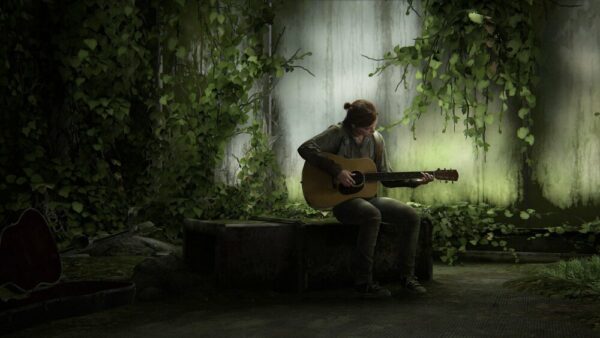
Yeah, for me, another one was The Last of Us for very similar reasons. Yeah. Which, as we all know, very relevant right now.
What The Last of Us doesn’t need HBO to be relevant. It’s the best video game story of all time. I will die on that hill. And it has been that for a decade.
I agree with you. Or is at least top five for me.
Sure. Yeah. I mean, I save. Just as often I say Final Fantasy 14, Shadowbringers. And Endwalker is the best video game story of all time, too. Anyway, there will be more about that later in 2023. But tonight is not that evening. So The Last of Us. Majora’s Mask definitely both tackle trauma loss PTSD. In the case of Joel and also Ellie, especially if the player is aware of the Left Behind expansion or the DLC for the first game? So how are you enjoying the show?
I’m totally digging it. I am in love with the show. Yes. I was a little nervous about well, how they would like portray it on the screen. But also like if they made deviations, what would that look like? Or would it honor the original series? And personally, I’ve totally dug every deviation that they’ve made. For me, it’s only enhanced or added more to it.
Yeah, Neil Druckmann. I think on the podcast that accompanies the show was talking about when you’re going to make a change to the source material. If it makes it better, go for it. And if it doesn’t make it better, don’t do it. Which seems like common sense. But then again, we have the Monster Hunter movie, so maybe it’s not so much common sense. Oh, Tyler. Are you going is your intent with this program to teach in? Either a master’s counseling or a doctoral program? Or like what is your angle on wanting to have this particular PhD?
Oh, well, so it’s a you know, kind of three pronged, right? The counseling, the counselor and the supervision, and I absolutely love each of those. Like, those are the reasons I get out of bed in the morning. And then the research is like why I wanted to go the PhD route specifically to research video games come from kind of that positive psychology standpoint. So honestly, all of it.
Yeah, I think it would be a lot of fun after this study is over to even just jump in to zoom and do a coffee chat because I’m always trying to do more research studies. And you know, I think I can easily see after participating in your study, that there is a natural overlap in the things that I’m excited about in research and the things that you seem to be excited about in research. Now. I want I want to make sure that we get very clearly in the episode how people can participate and support your project. But one more thing I want talk with you about I don’t know if you knew this about me but if you looked at my LinkedIn or something that maybe you do is I’m the co-chair of the APA Task Force for gaming disorder research, which is essentially the, the APA version of the World Health Organization effort that ultimately decided video game disorder is a thing, we shouldn’t be able to diagnose it some people are wrecking their lives with games, and clinicians can help them with that in just like with any mental health disorder, do you have any particular stance or perspective on the current DSM and the way the field is treating the idea of video games? Esports and, and the like,
Oh, I have many thoughts on this topic. So I’m thinking about you mentioned Anthony beam before, I’m thinking about his at all 2017 article where they acknowledge that video game addiction, or, you know, problematic, gaming definitely exists, but it affects less than 1% of people who play video games. Or at least according to you know, that study. So that kind of makes me think like, I also kind of noted that. Like, there are very few other behavioral addictions that are listed in either the ICD or the DSM, you know, compared to, you know, substance uses. So that kind of just makes me wonder, like, kind of about the priorities in general. Yeah, and I could talk about this all day.
I know I could too Gene, you are the non-clinician perspective on this. And I think that is extremely relevant here. Do you have any thoughts on whether it even matters if there is such a thing as video game disorder?
Hmm. So my idea, you know, by, you know, without being you know, wrote academic and this, and clocked academically inclined in this area in any way, is that it’s more of an, to me it’s feels more like an offshoot of a different behavioral problem, as opposed to the video games themselves. Like a person that plays video games in a very angry manner.
Well, that’s like video like with Overwatch and just getting owned repeatedly by the other team.
Right? I’m not sure if so much is the video game is the problem. It says that they have that lack of emotional intelligence to process their anger.
Yeah, whoa, Emotional Intelligence plus have not gotten good yet. Equals gamer rage. Right? So it’s just not equal video game disorder, gamer. Video game disorder are not the same thing. Right?
To me, I feel like that person would express similar rage on any other activity he wasn’t that person wasn’t having a good time with.
Right. So if you’re incompetent, a thing that you’re spending a lot of time doing, you’re going to have higher levels of frustration and rage filled acting out, right? Unless you have high mindfulness abilities, which could counterbalance the incompetence in the gameplay. Right. Oh, man, how many millions of people are playing Overwatch on Twitch right now and could benefit from what I just said?
Yeah, I feel like the majority of people playing that game are angry.
Well, right, because they’re getting owned repeatedly over and over and over, and they have no control and they don’t have peace inside themselves. So their identity is connected to whether their character is alive and killing other characters, or is dead and watching other characters kneel on their face.
Yeah, and that game along with other games like League of Legends, you can be on the winning side and still feel terrible, because there was so much trash talking even from your team saying how you’re not contributing. I’m doing all the work. Whatever.
Yeah, so this is this is my sort of thing. I’m going to tie what you just said back to a mixture of your response and Tyler’s so behaviors are not the only thing that matter. And cognitive behavioral therapy has ruined our occupation. Because it has convinced people that what you think has to be measured like a behavior, and what you feel has to be measured like a behavior. And this is not a behavioral problem video game. disorder is not a behavioral problem, if it was, there would be a number of hours played with a cut off, and anyone who crosses that line has a problem in their life is, is falling apart because you played the magic number 38 hours a week. That is not how video games work video game disorder, if it exists, would have to be a psychodynamic problem, it would have to be an existential problem, it would have to be a systemic problem, it’s you staying in your room to play your game, because you don’t know how to talk to your mom or dad, it has to be used staying in your room to play your game. Because if you did write that college paper, you’re afraid you would fail it. It’s not about playing the game. Almost little bit of Allen Iverson there, sorry. It’s not about what happens behaviorally by you playing a game and pushing buttons. It’s about everything else that can’t be measured, that you are running away from. And so I’m running this task force, I mean, you get a little, I don’t know if the task force will be happy with what I’m about to say. But one of the things I’ve come to realize organizing all the research in the last 10 years as best as I can, is that our field doesn’t know what to do with a problem like a video game disorder. Because the DSM only sees things like if it was CBT, running the universe. There’s nothing systemic in that book, and also the word addiction. psychiatrists and psychologists and all the super research-oriented fields that are pro the biochemical explanation of addiction and the neurological explanation of addiction. They can’t see what video game disorder is. Because you say the word addiction and they’re like, well, that’s not that. It’s like, right? The problem that happens to someone with gambling, and shopping, and video gaming, and working. It’s not addiction. But it could be a disorder. Right? Addictions kill you from the inside. Maybe existentially video games can. But I don’t think our field is going to use that diagnosis correctly, even if we had it. Because too many counselors are going to compare video games to alcohol when they should be comparing it to playing guitar. Tyler, I just gave a speech. But they’re here to talk to us about what you do. So any thoughts on that?
I don’t think I could have said it better myself. I pretty much agree with everything you said. And I think that’s kind of what I was referring to earlier when I said like priorities. You know, like, when I think about Western medicine, it’s all about like, how do we treat the symptom? Like how do we correct what’s wrong? Or the behavior versus more of like a strengths-based perspective?
Do you ever feel like you use the things that you’ve learned from RPG games, like tabletop or video games, that you use those things as a student?
Oh, totally. Especially, you know, speaking of psychological flow, you know, like, I like to take things like deconstruct them in my life and break them down into easily define goals, like kind of like checklists, and like scaffold my projects and tasks. And I also think that video games for me, they helped me see the bigger picture. Like, someone was talking to me one time about like this very same thing. And it made me think of like Ocarina of Time. You know, if I look at the whole Zelda adventure as like this big project, that’s very different than sectioning it off into dungeons, you know?
Yeah. I think that scaffolding our tasks into a quest log, and understanding the difference between main scenario and side quest, and completely optional, or I’m just doing it for a new outfit. It’s, it’s like a gamified version of the Eisenhower matrix where we need to in life, be able to identify things that we have to do quickly with high competence. Things that we never need to do, and it’s fine if we don’t, and things that are somewhere in the middle where do it well, but do it later. And when you can’t break it down in that way, that’s how anxiety gets people. It’s this crippling physiological response to the idea that when the future becomes the present, I will not have been able to do what I needed to do. But video games tell us, you always can do what you needed to do. You just have to figure out how. So let’s talk about your study really quick. Tyler, I want to get that in the episode. And give it it’s a rightful amount of time. So tell us what you’re allowed to about what the study is and how to find it.
Yeah, so it’s a study, again, kind of examining how specifically single player and or story-based video games impact players in their lives. I’m interested in learning a lot more about the gaming experience, you know, on more than a behavioral level, like you were saying before, so in order to take the study, you must be 18 years of age or older live in the United States, be able to read at least at a seventh-grade reading level, and play or have recently played single player and or story based video games. So I’m thinking like, The Last of Us like God of War Ragnarök, that just dropped Elden Ring. Even games like Donkey Kong Country, Tropical Freeze, I would count on this as kind of like the interest area takes about 15 minutes to do. It’s an online survey on Qualtrics. Very easy, very simple, very straightforward, you can do it on your cell phone, in your car if you need to, or on your lunch break. And if you want to find the study, I’ve kind of blasted it on all social media platforms. So it’s on Facebook. And I also have it on my Twitter, you can follow me at Tyler WC core, a, you know, I have it on Instagram and also my LinkedIn. And I’m happy to share the link with you and the QR code as well.
Awesome. So everyone that has been with me on this journey for years, Twitter is how most people found me. So also, it’s really nice when you’re getting involved in work like this to have people who are interested in what you’re doing. So I highly recommend and appreciate anyone who gives Tyler a follow that would be really awesome. And I found this study to be very easy to participate in. I don’t remember what the time estimate was in the consent part at the beginning, but I would guess I finished it in under five minutes. So if anyone’s worried about the time investment, it is much easier to complete than what I did. So please help that end value go up. The more people that complete it, the more relevant and reliable the findings are going to be. All right. Gene, Did I forget anything or gloss over something? Is there anything else we need to cover today?
We typically talk to our guests about their motivation profile.
Yes, I did forget something. Thank you. Okay, Tyler, we have your gaming motivation profile here. Thank you so much for completing this before the show. So these six categories come from Nikki’s gaming motivational questionnaire, which was originally designed around World of Warcraft, but he’s built his entire career around getting more and more specific with these statistical findings. Your highest category was immersion, which usually includes things like character creation and customization role playing discovery, investing yourself into virtual worlds and things of that kind. So what kinds of games do that for you that would make your response in those questions be like, “Yes, this is what video games are for me.”
Yeah, so lately, when I have a few minutes to rub together, I’ve been playing God of War Ragnarök, which I consider to be pretty immersive for me. Yeah, there’s this book. It’s by Pete Etchells. It’s called Lost in a good game. And for me, like I can get lost in a game like God of War. Ragnarök or like The Last of Us, part two. For me. It’s something like a really nuanced and complex story, record. like really dig into the characters and their backstories. And it just feels like a really fully fleshed out world.
The amount of storytelling you get just by walking around and choosing to do stuff is also really impressive to me.
Yeah, one of the things I really like about both God of Wars is that you learn a lot of random backstories. From the conversations between, you know, Mimir, Atreus and Kratos, for seemingly unrelated tasks. Like, you know, there’s a random conversation about web Amir brings out like, “Oh, I missed the food from my homeland.” And then suddenly, it’s revealed that Kratos really likes olives. And it’s like, oh, we wouldn’t have known that if he hadn’t had to walk around in circles. And that conversation popped up.
It blows my mind even that things like that happen, the amount of stuff you have to have locked in about the characters and the timeline. And this, the order of the timeline sequencing. It’s it also in in Ragnarök, the fact that you could be walking with a trace, it could be just you and the head, oh, my gosh, I beat the game like to Mimir Yes. Or you could have Freya with you, as well. And I don’t remember if there’s anyone else, but the fact that they always seem to have dialogue ready to go, no matter who is accompanying you. It’s insane. I wish that was my job. How did how did I end up? Well, I guess that’s why the gaming persona exists, right? It’s, it’s my way to atone for the choices I made in life that turned me into a counseling Professor instead of a game creator. All right, so you had a 77% on your immersion score, Tyler, and then you had 53% for achievement, that’s your runner up category. So achievement tends to be things like winning, conquering, learning mechanics, if there’s anything competitive being able to be high on the ranking system, if at all possible. So what do you think has created that kind of interest for even though it is a middle of the road kind of interest? You’re a little bit lukewarm on this one. But it’s your second-place quality?
Well, it makes perfect sense to me because I am competitive but not necessarily with other people like with myself, or versus TAFs. So sticking with God of War, I think about the Valkyrie battles in 2018. Or I forget what they’re called, but like the undead kings and God of War Ragnarök
They suck! They forced me to lower the difficulty level.
On my first playthrough same, but I do like, like getting better and mastering the skills and then overcoming something that once gave me pause.
Yeah, Gene, what was the battle arena where he has to go unlock the different glowing letters on the big sword?
Oh, they are the Crucible.
Yeah, that’s I found that at the end part of the game, and I found that to be incredibly enjoyable to Tyler. Have you found that side quests yet?
Oh, yeah, I 100% of that game.
All right. Well, I have not done that yet. Congratulations. Thank you. All right. And also, just to tie in a little bit more of my research and my interest in talking with you, you share that your Myers Briggs is the ENFP. So everyone on the show knows that’s extraversion, intuition, feeling and perceiving. And the, the temperament label for that is the champion. So you kind of described just that label and you describing your god of war experience, I can see that. So what does a champion clinician do that makes you stand out? And really help people unlock their potential?
Well, emphasis on character development for sure. And I feel like a lot of what makes me psychodynamic and existential and especially working with kids is identity development. So that’s something that I really value and focus on. Very enthusiastic and also like roles with flexibility. I feel like that just lends itself well to everything that I do. I’m looking at the areas for growth and in the little picture that you shared, may fail to follow through and frost graded, I also had to lower the difficulty. And I wonder if my professors are kind of laughing when they see this.
This is from one of my PowerPoints that I did that’s directly connected to that Star Wars, The Old Republic MMO data. So my participants did a full Myers Briggs Type Indicator, they did the motivation for online games questionnaire that you did. And I just ran the stats for all 16 personality groups. And this is what the ENFP players averaged out at. So I’m also very excited that you are an extrovert scoring person, I don’t really run into very many of those. Maybe it’s because I don’t attract them. But I got you on the show. So I did enough social outreach to strangers to overcome my limitations. Thank you for helping me feel that!
Thank you for having me. Yeah.
Solo Gaming: The Return
So let’s go to our final segment. The was our final segment. Yeah, The Return. So we can go back to our daily lives and take our next step forward. All right. Tyler, thank you for being on the show. I’m so excited to get to reconnect with you down the line when this study is over, or when you’re writing it up, or when you’ve submitted it, and it’s accepted somewhere. So just please stay in touch. Because I would love to bring you back and do a part two to this conversation when you can talk more about the different scales that I noticed the spiritual connection of those questions like, Oh, this is from that, oh, this is from that, oh, he’s measuring this, I love this stuff. But we can’t, we can’t ruin your study before you even finish it. So you know, anyone listening? Please connect with Tyler on Twitter or somewhere else in the social internet world and participate? I’m sure he will appreciate that. Gene, do you have any thoughts about this conversation and how it could influence your direction through the next week? I know I turned that really simple question into a deeply philosophical undertaking.
Hmm. Yeah, that is a lot.
Now I’m just going to share another therapy story here. And I started out as a cognitive behavioral influencer as far as my clinical identity. And this is coming out of my master’s program. But what happened is, so many teenagers were brought to therapy by people who are only measuring their behaviors. And I would try to talk to them about what do you want to be what makes you feel like you are max level? What is your ideal self? And they don’t know how to answer that question. Because everyone’s just doing token economy, behavior charts, and telling them how low they’re scoring all the time. So of course, they want to play video games, because video games are like, “Good job” once in a while, which they don’t even know if their parents have those words in their vocabulary. So I’m being so harsh to society, but society, you earned it. So Gene, I made the question philosophical, and then I raged against behavior measurement. So now what are you what are you going to do now?
I definitely have greater consideration for your response to what I said about how video game disorder might not be a real thing.
Nothing is a real thing. Everything is constructed by society. Right.
And so yeah, I mean, knowing that I mean, I definitely would think about more about like, how I when I play games, I can fret, I have the mental framework of understanding. Just because I did this instead of you know, fixing up pipe that I don’t want to fix up my die.
We both are wrestling with this at the same time.
Yeah. But like, that doesn’t make me any less of a person. That’s, you know, it’s just because it’s not a I’m doing this because I don’t want to be a plumber.
Oh, right. That’s the other thing. Like the whole setup of my child is failing at life because they want to play something at the age of 10. Instead of “wake up, get in the car and go fix someone’s plumbing” at the age of 10. Well, guess what? They can’t go be a college graduate at the age of 10. They’re not. Neil Patrick Harris in a fictional show. And I think that, that whole min maxing idea we all decide what we’re going to be and what we’re not going to be passively and deliberately we decide all those things, and the pressure to be all the things everywhere all at once, at a young age or even a young adult age or even in your mid-30s, or even in your 50s. The only person who needs to answer that question is yourself. And the only person you have to answer that question for is yourself. So when other people are asking you, “what do you want to be?” that conversation already is failed on some level.
You know, in video games are just an extra element to think about in the way you use time, like I have said many times, video games taught me how to become Dr. Kaufmann, in some ways, much more so than anything that happened in a classroom. And that’s what I’m trying to help people see when I take the time to do counseling with them, or do a show like this. One is, video games are not the reason for your struggles in life, they can contribute, and your decision to play them at the wrong time and in the wrong way can contribute. And at some point, you may need to change the way that you do connect with them, even to the point of not playing for a while. I haven’t played a video game since Sunday on my stream. And I’ve been grading things I’ve been creating PowerPoints. And I’ve had Twitch open on this extra monitor. And I’ve been watching a lot of people play different games that I like Final Fantasy, Overwatch and Dead Space. And some of those streamers get to the point where their streams are 5, 6, 7 hours long. And I think to myself, “I bet you my channel would grow if I did a six-hour stream on a regular basis”, but I can’t. And I know that so I don’t.
So maybe that is the only way that video games to become a problem is when you look at your life and you say maybe I would enjoy it more if I played this game for seven hours at a time. And you shouldn’t but you do. But that’s a choice. We all choose to sacrifice something so that we gain something else. And I just chose not to play video games. So I can grade 80 papers a week. Right? And who’s to say that’s the right choice. So that went dark. I should just play dead space that makes they’ll bring me to my happy place.
All right, if this is sounding fun to you and you’d like to find some great people to play video games with you can check out AIE Guild and Final Fantasy 14 and Star Wars Old Republic they are found it aie-guild.org
And I have one last quest for everyone to collect for the day. Complete Tyler’s research study. I am dead serious and
Continue The Journey
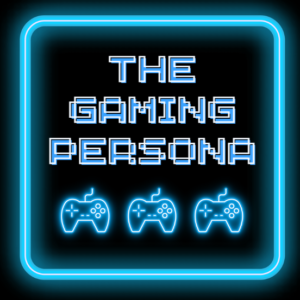
Be sure to check out more amazing episodes of The Gaming Persona!!
Important Links
- @DrGameology – Twitch
- Apple Podcasts – The Gaming Persona
- Spotify – The Gaming Persona
- Google – The Gaming Persona
- LinkedIn – Connect with Me
- Blogs – Dr. Gameology
